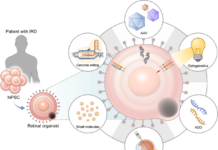In today’s fast-paced world, where personal and professional demands often collide, gaining a deeper understanding of ourselves can be a powerful tool for growth. Psychological assessments offer a structured and evidence-based approach to uncovering that understanding. Far from being limited to diagnosing mental health conditions, these assessments provide valuable insights that can guide self-improvement, career development, and stronger interpersonal relationships.
What Are Psychological Assessments?
Psychological assessments are standardized tools used by licensed psychologists to evaluate an individual’s cognitive, emotional, behavioral, and personality functioning. These assessments may include interviews, questionnaires, intelligence tests, personality inventories, and other diagnostic tools. The goal is to gather objective data that helps individuals and professionals make informed decisions about mental health, learning styles, work behavior, and more.
Clarity for Personal Growth
One of the most impactful benefits of psychological assessment is the clarity it brings to personal challenges. Many people struggle with self-doubt, mood changes, or persistent patterns of behavior that they don’t fully understand. Psychological assessments can identify the root causes of these experiences, such as anxiety, ADHD, depression, or trauma, offering a clear direction for treatment or personal development.
For example, someone who constantly feels overwhelmed and distracted might discover through assessment that they meet the criteria for ADHD. With that knowledge, they can begin targeted therapy, adopt effective coping strategies, or even consider medication. Instead of feeling lost or frustrated, they gain a clear explanation—and more importantly, a plan to move forward.
Assessments can also uncover personality traits, strengths, and values that individuals may not have consciously recognized. This self-awareness becomes the foundation for better goal-setting, decision-making, and emotional regulation.
Enhancing Professional Growth
In the workplace, psychological assessments can support professional development in powerful ways. Career-related assessments, such as those measuring leadership potential, problem-solving styles, or interpersonal tendencies, can help individuals understand how they function in team settings or under stress. This can lead to more informed career choices and improved workplace dynamics.
For example, an emerging leader might undergo a personality assessment that reveals a strong preference for structure and organization but a tendency to avoid conflict. With this insight, they can focus on developing conflict resolution skills and team communication, ultimately enhancing their effectiveness and confidence in leadership roles.
Organizations also use psychological assessments in hiring, training, and team-building. By understanding the psychological makeup of employees, companies can better match roles with individual strengths, reduce turnover, and foster a more cohesive and productive work environment.
Improving Relationships and Communication
Another often-overlooked benefit of psychological assessment is its impact on relationships. Whether in personal or professional settings, knowing how you and others think, feel, and respond can greatly improve communication and empathy.
Couples, for instance, may use assessments during counseling to identify differing attachment styles, communication preferences, or stress responses. With this knowledge, they can break unhealthy patterns and build healthier, more supportive dynamics.
In team settings, understanding the personality profiles and communication styles of colleagues can minimize misunderstandings and improve collaboration. A more emotionally intelligent workplace leads to better morale and greater productivity.
A Tool for Lifelong Development
Psychological assessments aren’t just for people in crisis or for those with mental health concerns. They are valuable tools for anyone interested in understanding themselves better, overcoming challenges, and reaching their full potential. Think of it as a roadmap—one that highlights your strengths, sheds light on blind spots, and offers direction for where to grow next.









